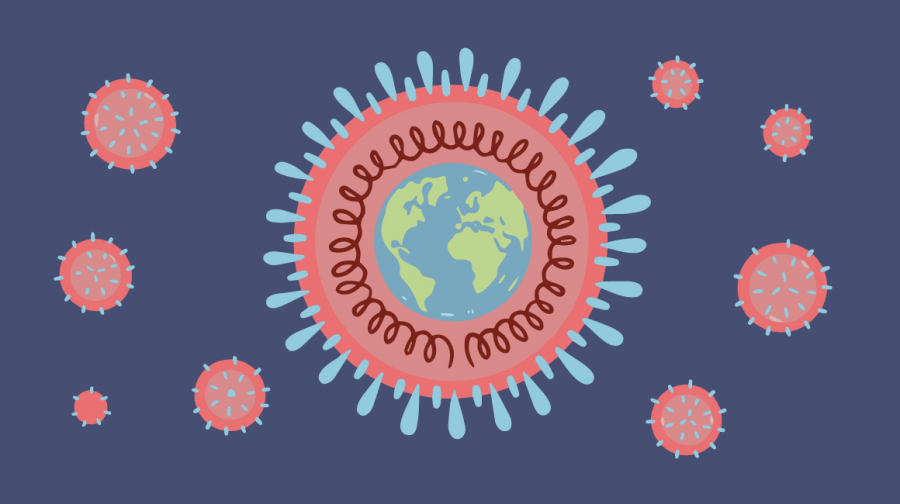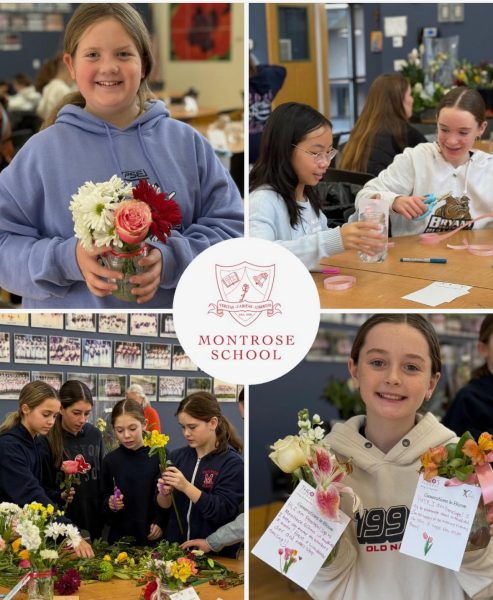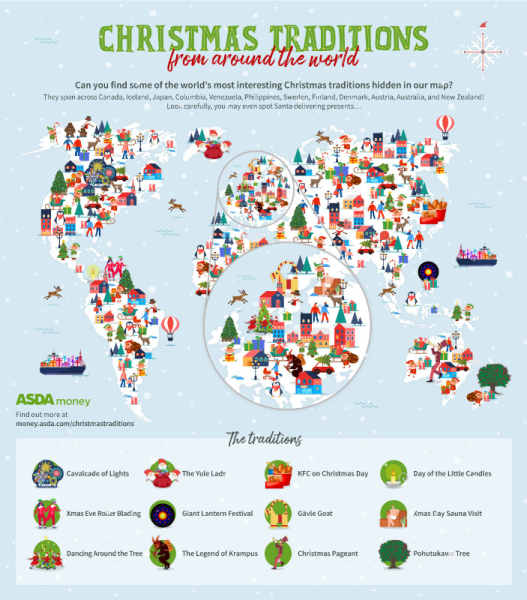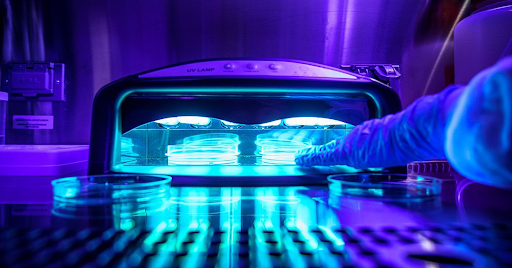What Is Covid-19? The Answers We All Want to Know
Philippa Steinberg for the IGI
An illustration of SARS-CoV-2 virus and the world.
A virus. What is it? How did it start? I often found myself wondering these very same questions and not always finding a clear answer. Many websites explain Covid-19 in a scientific way, and it’s hard for us to truly and fully understand what Covid-19 is. Considering my past struggles with understanding the concept of the coronavirus, the goal for this article is for other girls at Montrose to learn about what COVID really is in a way that’s clearly communicated and easy to understand.
The name
Many disregard the name “COVID” and think it has no importance, but the truth is that the name stands for “Coronavirus Disease.” The CDC recently published an article on May 4th, 2021 mentioning that the letters “CO” stand for Corona, “VI” stands for virus, and “D” stands for disease. Therefore, if we were to break down the word “COVID,” it would mean “Coronavirus Disease.” The CDC also mentions that “coronavirus” was the chosen name because the virus looks like a crown with spikes.
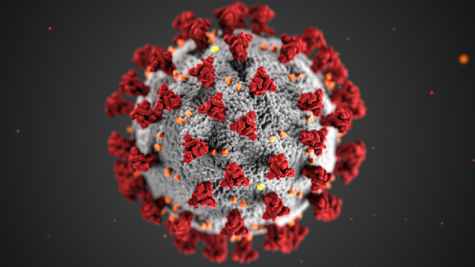
What is it?
In scientific terms, the Covid-19 virus is a respiratory sickness that causes the coronavirus bacterium to replicate its RNA genomes using enzymes, which are prone to errors. “What does this mean?” you may ask. In simpler terms, it means that the coronavirus bacterium makes a copy of its RNA (ribonucleic acid) genome, which is a full set of the bacterium’s RNA, by using an enzyme (a type of protein) that is prone to error. The rapid replication of the virus is one of the main reasons why Covid-19 is so widespread. Covid-19 is so contagious that the germs can last up to three days on a regular surface.
There has also been an outbreak of Covid-19 “variants” that have occurred more recently. To backtrack, the definition of a variant is a form of a sickness — in this case, coronavirus — that differs from the first type due to an adaptation through frequently replicated genomes. Variants in Covid-19 can be extremely alarming because they might have more health effects on people and have a higher death rate. One known variant of the coronavirus is the “Delta variant,” commonly called “Delta.” Although the research on Covid-19 is far from over, scientists and doctors have a good idea of what the virus is and the health effects it has on others.
Covid-19’s impact on Montrose
If we zoom out, it’s evident that Montrose School has done a great job adjusting to the Covid-19 pandemic. As soon as Covid-19 became a concern, Montrose faculty was quick to adjust to online learning. Then, the following year, there were multiple rules students had to follow. It was also a requirement for everyone inside to wear masks, keep distance, and be mindful of other people’s boundaries. Although the school did its best to keep everybody in the Montrose spirit, a lot of fun events had to be shut down.
However, most, if not all, traditions are back on the Montrose agenda this year and students are thrilled! One freshman said: “I’m so happy we’re able to do the Haunted Hallway again. Halloween has always been my favorite, and it’s great that Montrose is allowing us to do it this year. It’s nice we can do fun traditions even during Covid!” Despite traditions being put into play, students and faculty are still required to wear masks, but it doesn’t seem to be a big challenge. A sophomore said: “Adjusting to the masks was hard at first, but if it meant I was able to get in-person learning, I didn’t mind at all.”
It’s no secret that the pandemic hasn’t been easy for Montrose faculty, staff, and the student body, but everyone has been such troopers. Another student said: “Covid has most definitely impacted the way I learn, but it has also allowed me to find inventive ways of staying focused, and it changed my views on the importance of handwashing and masks.” Overall, Covid has been a struggle mentally and physically, but Montrose, like always, has risen to the challenge.
Kate Regan ‘25, Contributing Writer

